'I wasn’t the most talented, but I’d leave no stone unturned': Dani Rowe on her sporting dad's career influence
The London 2012 gold medallist and her biathlete father talk to Chris Marshall-Bell about their similarities and differences
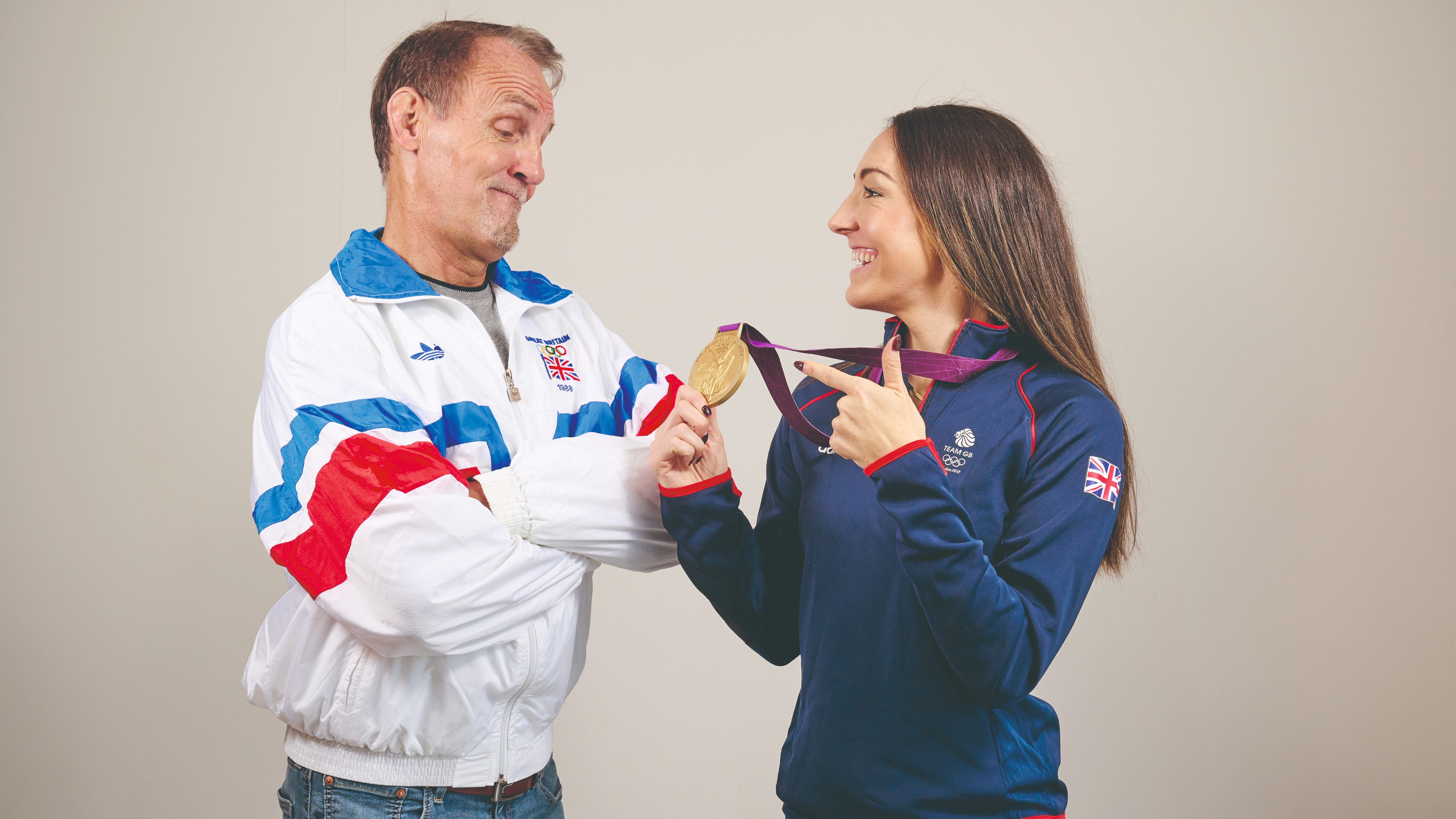

She may have won gold as part of Britain’s team pursuit squad in the 2012 London Olympics, but Dani Rowe (née King) wasn’t the first athlete from her family to appear in the Games. Her father Trevor King represented GB at the 1984 and 1988 Winter Olympics in biathlon, which combines cross-country skiing with shooting. Introduced to the sport in the late Seventies while in the army, Trevor spent a decade competing on the international circuit. His best result was 15th in a World Cup round in 1985. For a competitor hailing from a non-Alpine nation, he was exceptional.
After retiring following the Calgary Olympics in 1988, Trevor worked as a police officer for 23 years and has also worked in management for operations and building companies. He and his wife Lynn have two daughters, Dani and Sarah. Dani, now 34, competed on the road until 2018, when she wrapped up her career with a bronze in the Commonwealth Games road race. She is married to former Continental-level racer Matt Rowe, and the couple have two children. For this ‘Meet the Maker’, we wanted to know how much of Trevor’s endurance talent was passed on to Dani. Let’s meet them.
DANI ROWE
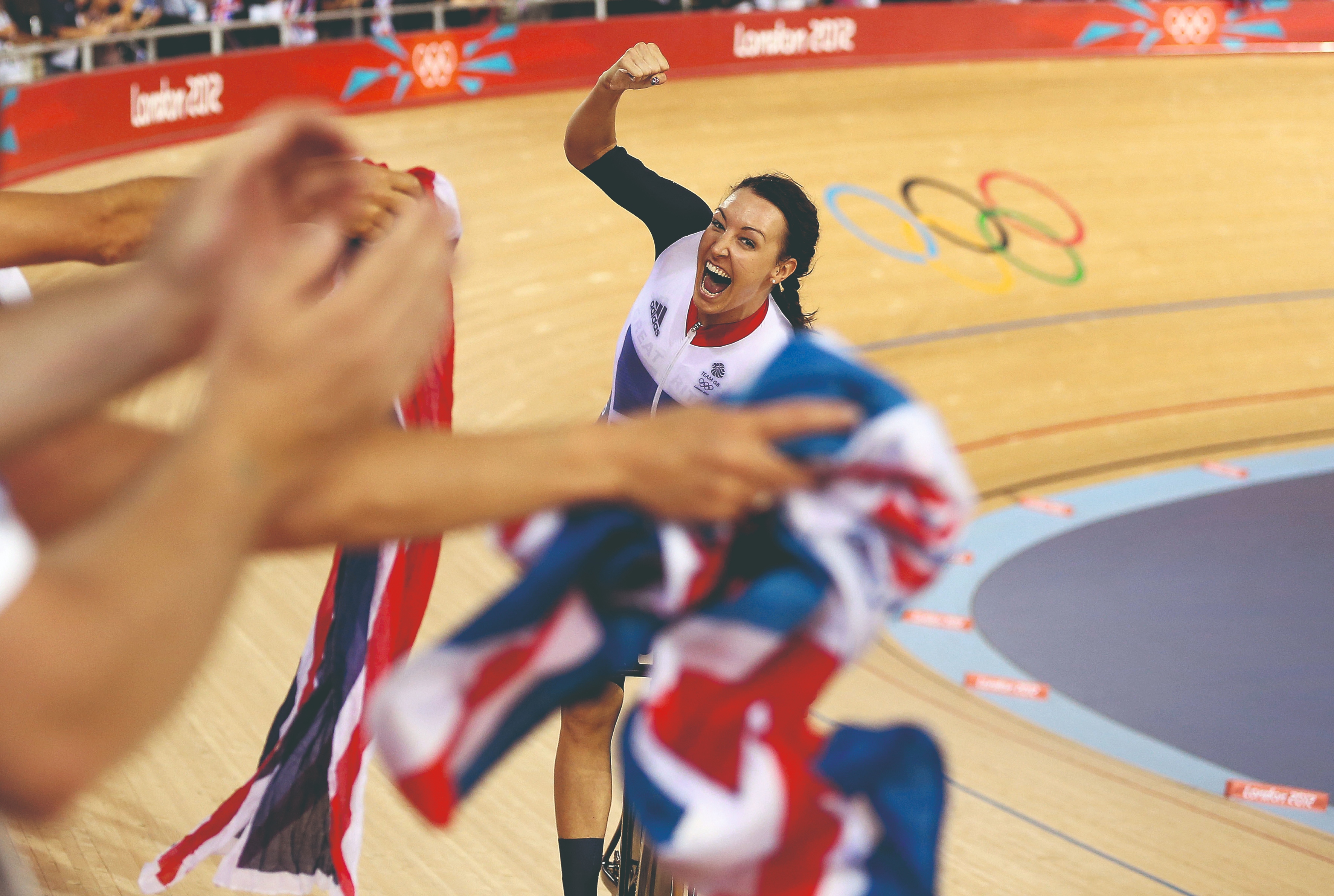
- Age: 34
- Height: 5ft 7in
- Raised: Southampton
- Lives: Cardiff
- Occupation: Commentator and pundit
- Biggest sporting achievement: 1st – team pursuit, Olympic Games (2012)
What was your sporting background?
I was naturally sporty as a youngster and did ballroom line dancing, gymnastics and trampoline. But it was swimming that I excelled in, competing in breaststroke at a county level until I was 14. I always dreamt of being an Olympic champion, so when cycling gave me that opportunity, I took it.
What did you know about your dad’s sporting career?
He was so modest about it that he never brought it up. I suppose I was pretty naive not to tap into his experience. It’s mad how successful he was in a sport that Britain is so little associated with.
Have you tried cross-country skiing?
Get The Leadout Newsletter
The latest race content, interviews, features, reviews and expert buying guides, direct to your inbox!
One time with [Swedish retired pro cyclist] Emma Johansson. To be skiing in beautiful scenery was amazing, but I found going downhill on thin skis so hard. I’m not sure I’ll do it again.
In what way did your dad most influence you?
Definitely mindset. He would say he trained very hard, and was always committed and determined. I was the same – I wasn’t the most talented, but I’d leave no stone unturned. Dad said he’d be at every startline knowing he’d done everything he possibly could. He has those ‘top two inches’, the psychology of a top athlete.
What psychological support did he offer you?
He would take all the stress away from me, remove all the barriers that might have got in the way. He’d put a mattress in the back of the car so I could sleep on the way to and from Newport velodrome for track league. If it was raining, he’d come out on the bike with me, and when I was doing a turbo session in the garage he’d always be there supporting me, giving me extra motivation. My dad has always been the one I call first for anything and everything. He can always help me look at things positively.
Which of your dad’s sporting genes did you inherit?
Biathlon is known to be one of the hardest sports cardiovascularly, and so is cycling. We are both endurance athletes. I’ve got fast-twitch muscles, hence specialising in the team pursuit, but also a good VO2 max. He needed the same to excel in his career.
How’s your hand-eye coordination?
Rubbish! I’ve definitely not got that from him! But then I’ve never turned my hand to any sport that’s required it – I’ve always done individual and cardiovascular sports.
How different are your personalities?
They’re not! We’re similar in a lot of ways. We’re quite deep people, very motivated and organised. We also tend to help people but not listen to ourselves. For example, if I’m worried I’ll talk to my dad, who’ll talk me through the process to calm me down, but then he’ll not practise what he preaches. I’m the same.
Describe your dad in three words.
Three words doesn’t do him justice. Special, caring, supportive.
TREVOR KING
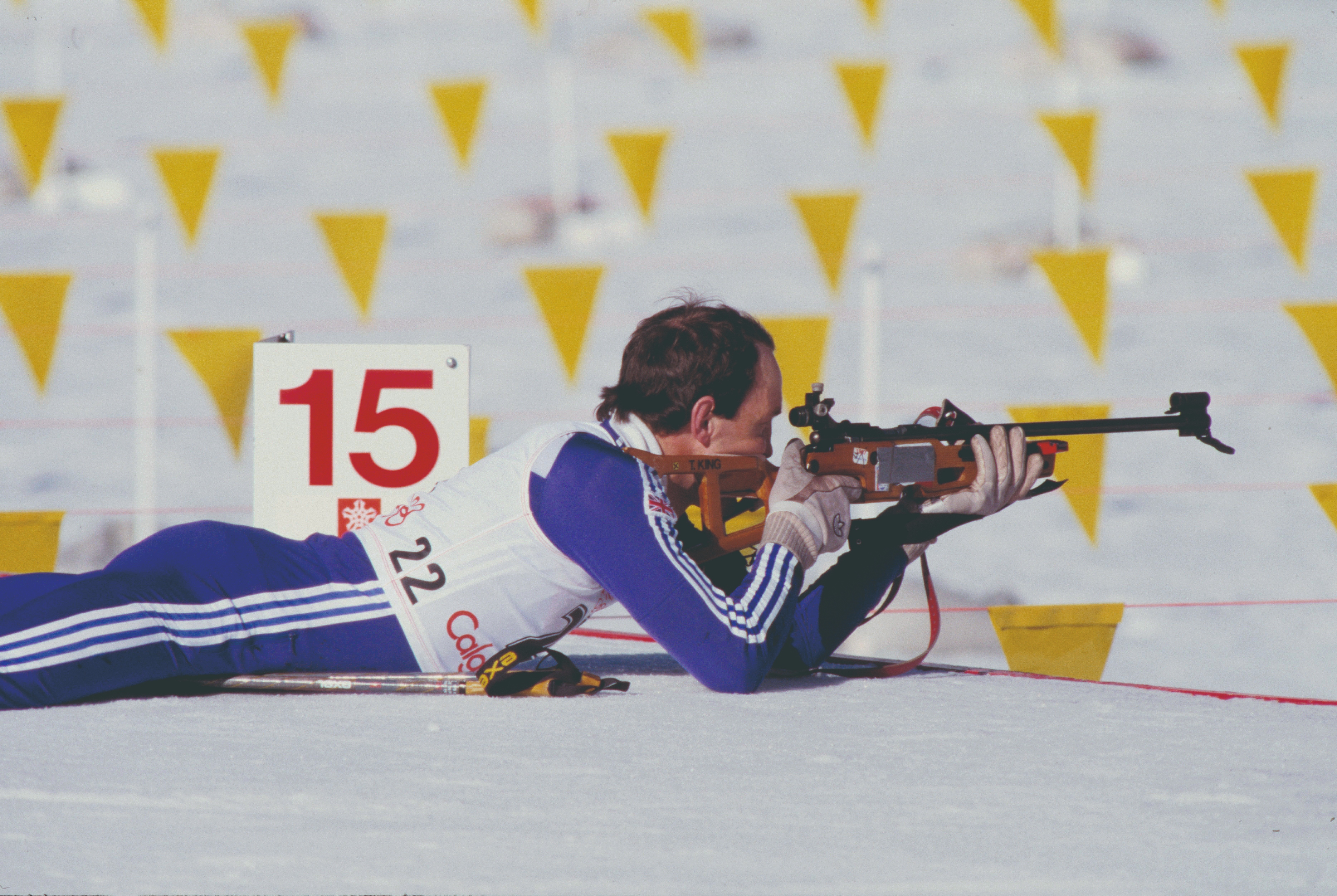
- Age: 64
- Height: 6ft 1in
- Raised: Southampton
- Lives: Southampton
- Occupation: Retired athlete, soldier and police officer
- Biggest sporting achievements: 2x national biathlon and national XC skiing champ, 1986 and 1987
Did you have sporty parents?
No, neither my mum or dad ran or swam. It’s why I always say that it’s the ‘top two inches’ that make the difference in being successful.
Were you sporty as a child?
People say your cardiovascular potential is largely determined by your genes, but I didn’t do endurance sports as a kid and remember once finishing 25th in the school crosscountry race. It was only when I started crosscountry skiing that I noticed these skills, and I was faster than the British cross-country ski team who didn’t have to carry a gun to shoot. I once did a VO2 max test and my score was 77 [ml/kg/min].
Describe a typical training day
We used to do a lot of combination training: two to three hours in the morning at a slower pace, then shorter and more intense sessions in the afternoon. The races were short at 20km and 10km, but with lots of climbing, so being able to run up hills and recover quickly on the descents was crucial. I’d also do gym work because carrying a weapon over your shoulder while using double poles requires a strong upper body.
What was your biggest strength?
Biathlon combines two facets of sport: skiing is cardio, and target shooting is all about the brain – it’s completely cognitive. I’d have to get my heart rate down from 170bpm to 80bpm to shoot five shots at a target the size of a golf ball. I wasn’t the fastest skier, but the shooting pushed me up.
What did you struggle with?
My mind would switch to wanting the result and not thinking about the process. I remember in one race, when I was lining up for my last shooting round, I put myself under this extra burden of pressure because I knew if I hit the target I’d be the first ever Briton to finish in the top 10 of a World Cup race. But I missed it because I stopped thinking about the process. It was the mental aspect of the sport I needed to work on. I would have benefi ted from a psychologist like Steve Peters.
Do you still ski?
Apart from one hour in Switzerland a few years ago, I’ve not put skis back on since the 1988 Olympics. But I did go back to the Canmore ski centre in Canada in 2023 and stood on the exact same place I shot at. It brought back a flood of emotions.
How did you use your experience to help Dani?
I knew the fault I had in sport was staying in the moment, so I like to think I helped Dani with that, and tried to round her off . I’d tell her she’s not necessarily Dani King the cyclist, but Dani King who cycles. It doesn’t define you as a person. Otherwise, everything becomes too much of a challenge.
How did you motivate her?
It wasn’t a question of motivating her, but of discovering what demotivated her and removing those obstacles. I’d put a mattress in the back of the car so she could get her head down.
How are your sporting journeys similar?
To some degree, I think Dani may have had imposter syndrome because she had the feeling that she came to the sport quite late and therefore other riders were potentially better than her. And I was the same. We were both very committed and disciplined as athletes, and that without doubt helped us both. I’d always tell her: if you fall down six times, you stand up seven times.
What’s one thing you definitely didn’t pass on to Dani?
Hand-eye coordination skills. I think there’s two reasons for that: one, she didn’t play a lot of racket sports, and two, growing up in the Sixties, we were always playing ball games outside. It’s the one thing I have but she lacks.
Describe Dani in three words.
Empathic. Loving. Caring.
THE NO-CONFERRING ROUND
‘Guess what your dad said when we asked…’
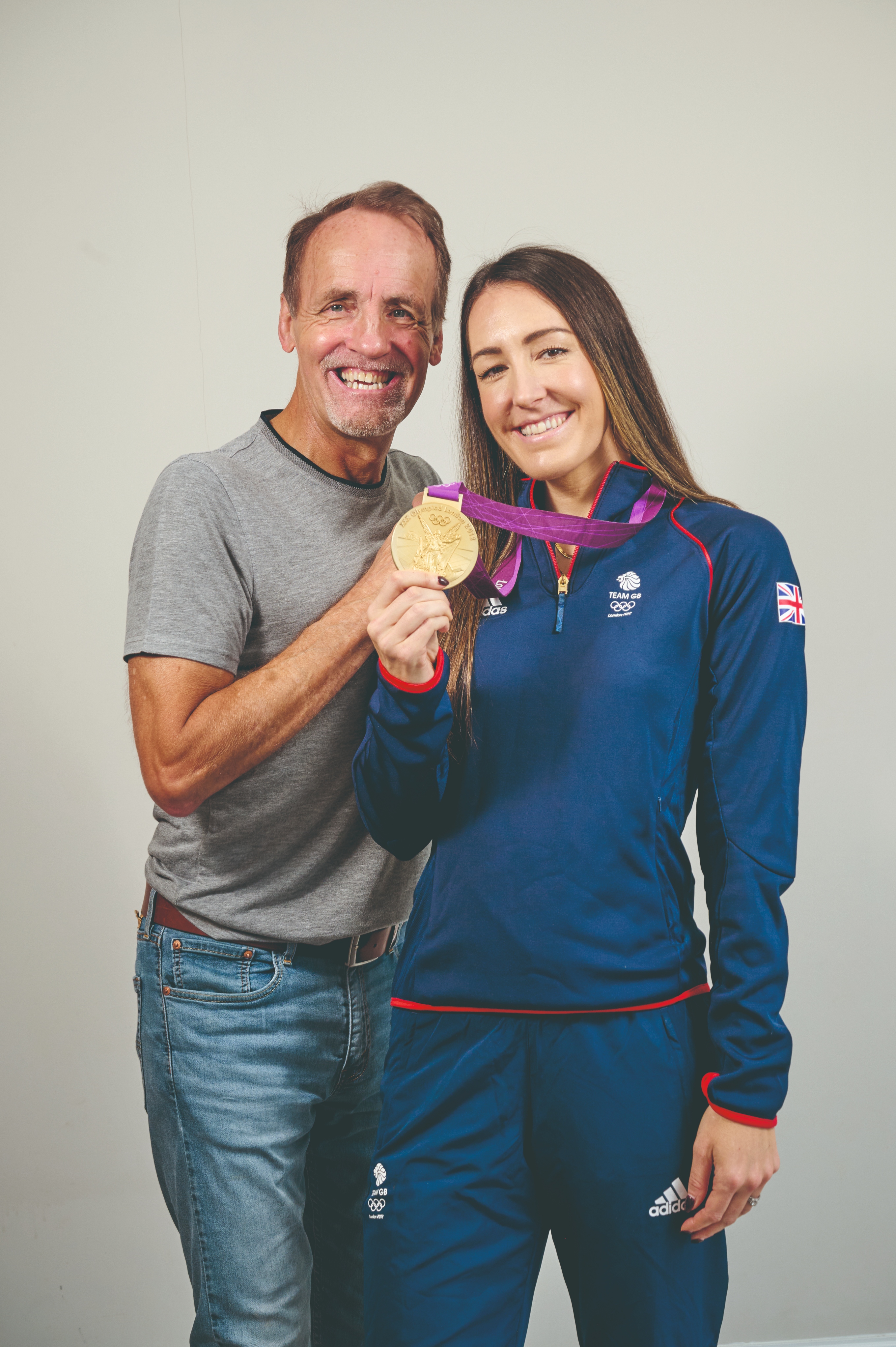
What’s the one thing Dani can do but Trevor can’t?
Dani: Sleep! He’s terrible! But he’ll say he isn’t as spontaneous as I am; he plans everything.
Trevor: She can multitask, but I struggle. And she’s more adaptable to change – I need to plan everything.
What’s the one thing Trevor can do but Dani can’t?
D: Think logically. I’m not so good at it.
T: Mow the lawn. Dani wouldn’t know how the mower works, let alone how to do it.
Could Dani have been a biathlete?
D: He’ll say yes – he’d say I could do anything.
T: She could have been a good skier because she has endurance and good balance. Could she have been a shooter? If she applied herself, probably.
Could Trevor have been a track cyclist?
D: He won’t be confident, but I think he could have been.
T: I’ve asked myself this a few times and I think I could have been. Dani and I have got the same physical attributes.
Who’s had the most illustrious career?
D: I think he has to say me…
T: Without a doubt Dani has trumped me. I was British champion, and have two Olympic participation medals, but she’s got an Olympic gold.
What does Trevor think is the tougher sport?
D: He’ll choose biathlon. And I’d agree, just because you have to get your heart rate right down to shoot.
T: Biathlon. It’s two sports, and it’s physical as well as mental.
Who’s more competitive?
D: Me. He’ll say the same thing.
T: Level pegging, can’t say either way.

Thank you for reading 20 articles this month* Join now for unlimited access
Enjoy your first month for just £1 / $1 / €1
*Read 5 free articles per month without a subscription

Join now for unlimited access
Try first month for just £1 / $1 / €1
A freelance sports journalist and podcaster, you'll mostly find Chris's byline attached to news scoops, profile interviews and long reads across a variety of different publications. He has been writing regularly for Cycling Weekly since 2013. In 2024 he released a seven-part podcast documentary, Ghost in the Machine, about motor doping in cycling.
Previously a ski, hiking and cycling guide in the Canadian Rockies and Spanish Pyrenees, he almost certainly holds the record for the most number of interviews conducted from snowy mountains. He lives in Valencia, Spain.
You must confirm your public display name before commenting
Please logout and then login again, you will then be prompted to enter your display name.
-
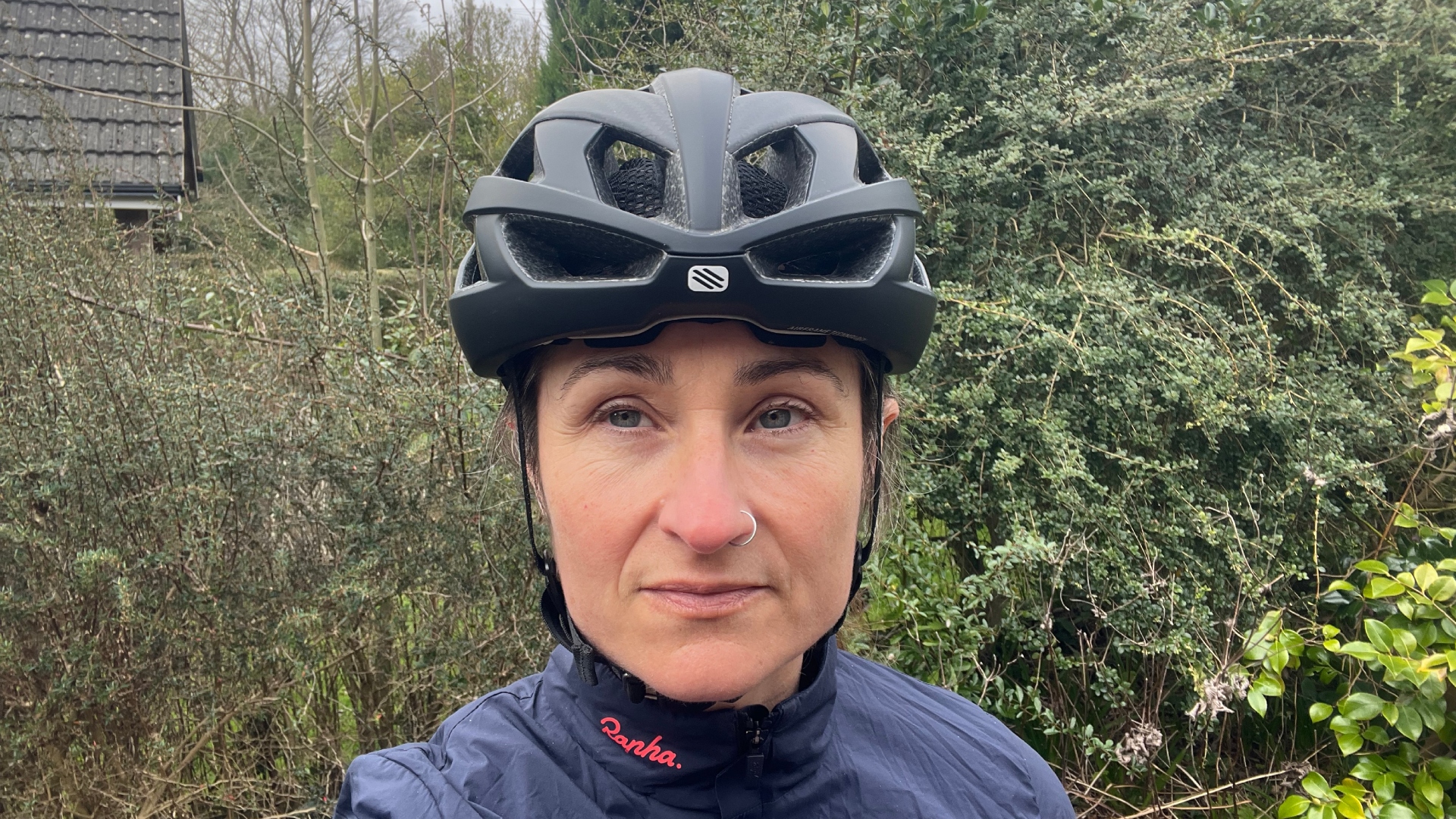 Rudy Project Rebel bike helmet review
Rudy Project Rebel bike helmet reviewRebelling against the solid shell oversized helmet fashion, the Rudy Project Rebel goes big on ventilation and breathability, but there is a weight penalty
By Hannah Bussey Published
-
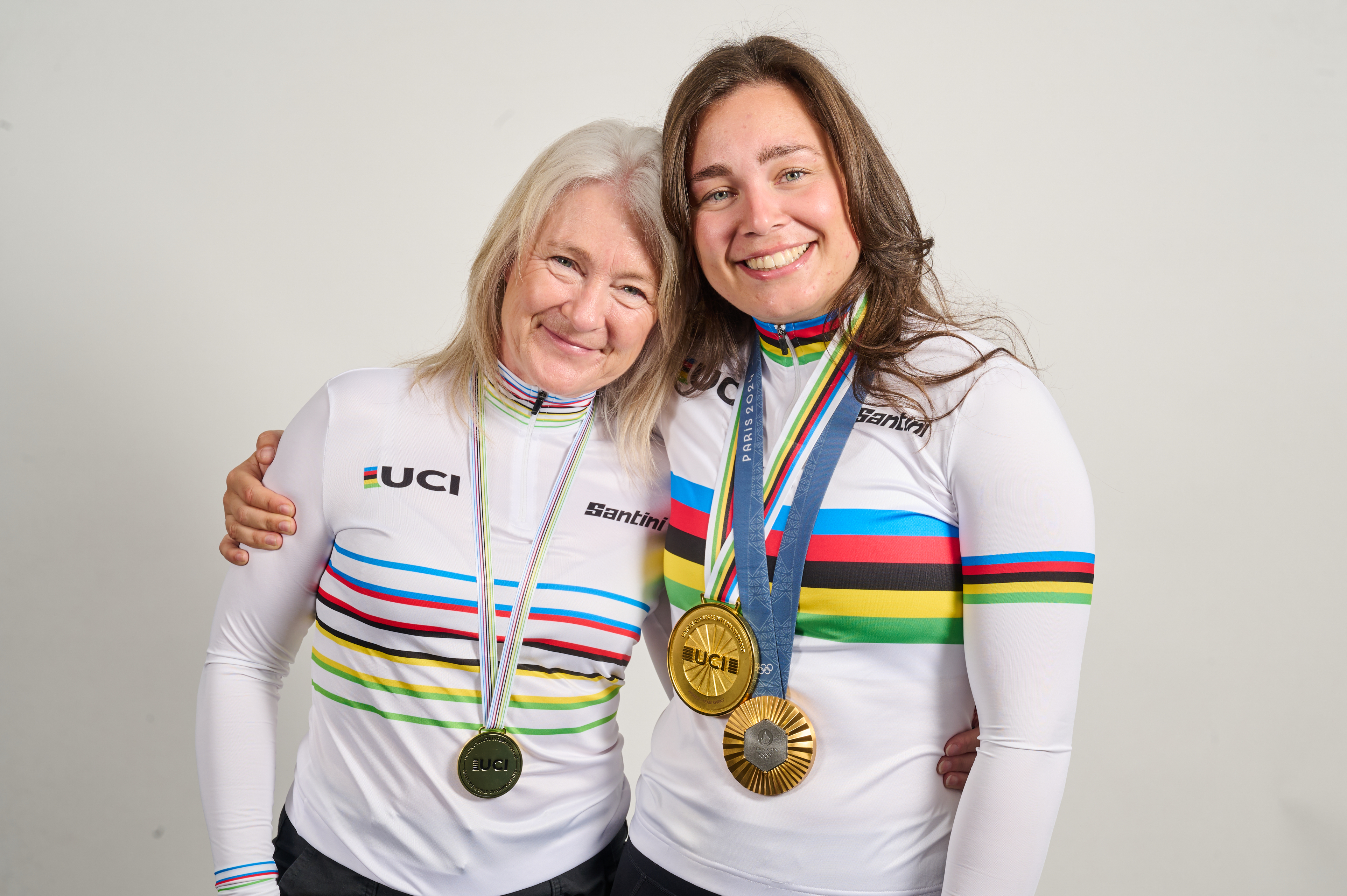 'I wanted to be world and Olympic champion – my parents made me feel that it was possible': Meet Sophie Capewell and her gold medal-winning mum
'I wanted to be world and Olympic champion – my parents made me feel that it was possible': Meet Sophie Capewell and her gold medal-winning mumSome mothers and daughters make memories together. The world-beating Capewells make history too. Tom Davidson meets the extraordinary duo
By Tom Davidson Published